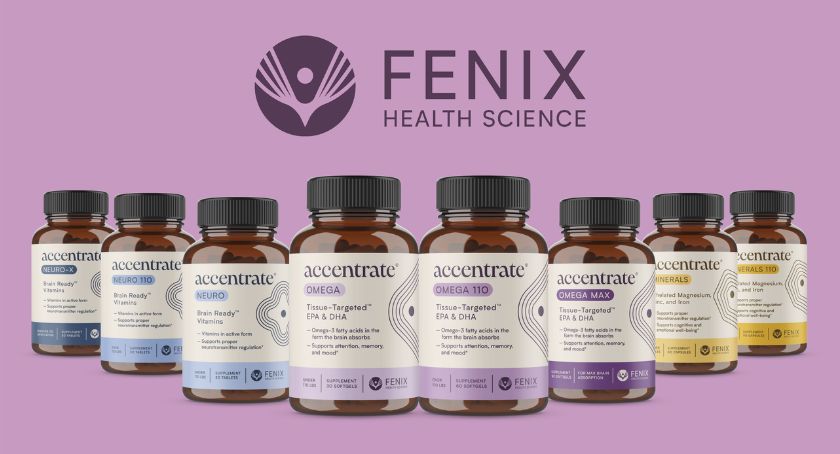Exclusives
Do Supplements Increase Death Risk?
Controversial study links certain supplements to higher mortality risk in older women.

By: Joanna Cosgrove
The body of research supporting (and in some cases, cautioning) the use of specific dietary supplements was recently added to by a controversial study that made national news because of its conclusion that certain common vitamin and mineral supplements correlated to an increased risk of death in older women.
The study, published in the Archives of Internal Medicine, assessed the use of vitamin and mineral supplements in relation to total mortality in more than 38,000 women with an average age of 61 years, who were enrolled in the Iowa Women’s Health Study.
The researchers, led by Jaakko Mursu, PhD, a nutritional epidemiologist at the University of Eastern Finland, Kuopio, Finland, and the University of Minnesota, MN, said the follow up data that spanned nearly two decades exposed a link connecting certain supplements—most prevalently multivitamins, vitamin B6, folic acid, iron, magnesium, zinc and copper—with an increased mortality risk. Iron represented the strongest risk for increased mortality, whereas calcium was identified as the supplement that best reduced the risk of mortality.
The researchers concluded that there was “little justification for the general and widespread use of dietary supplements,” and added their recommendation that supplements only be used “with strong medically based cause, such as symptomatic nutrient deficiency disease.”
“Our study raises concerns about the safety of a number of commonly used dietary supplements,” stated Dr. Mursu via press release. “We would advise people to reconsider whether they need to use supplements and put more emphasis on a healthy diet.”
As expected, the study results were met with harsh criticism from supplement industry advocates who were quick to point out its flaws.
For Duffy MacKay, N.D., vice president, scientific and regulatory affairs of the Council for Responsible Nutrition (CRN), the disappointment was in the details—or lack thereof. “The authors note in their article that ‘…dietary supplements are commonly taken to prevent chronic disease…’ The statement would be more accurate with the addition of one word: dietary supplements are commonly taken to help prevent chronic disease,” he said. “In other words, dietary supplements should not be expected, in and of themselves, and without the synergy of other healthy habits, to prevent chronic disease.”
Mr. MacKay said the study expressly attempted to “tease out” dietary supplements as one component of good health. “CRN maintains that nutrients may be robbed of their beneficial effects when viewed as if they were pharmaceutical agents, with scientists looking to isolate those effects, good or bad,” he said.
He also stressed the associative nature of the study, as the authors themselves noted certain limitations. “In fact, when the authors did their initial [minimum adjusted] analysis, it appears they actually found benefit for many of the supplements, not just calcium; yet instead of stopping there, they went on to “further adjust” the data, possibly until they found statistics worthy of this publication’s acceptance,” said Mr. MacKay. “The study may make for interesting scientific water cooler discussion, but certainly does not warrant sweeping, overstated concerns for elderly women.”
Mr. MacKay’s colleague, Steve Mister, president and CEO of CRN, questioned the agenda of the report.“First, within the article itself are a number of opinions including this one: ‘Also, cumulative effects of widespread use, together with food fortification, have raised concern regarding exceeding upper recommended levels…’ It’s quite popular these days to talk about overnutrification, but in fact research consistently shows that most people are falling short in several key nutrients such as potassium, calcium, vitamin D, and fiber while certain subpopulations fall short in folate, vitamin B12, and iron,” he said.
“Second, the authors advise that dietary supplements only be used ‘with strong medically-based cause, such as symptomatic nutrient deficiency…’ Given the high dosages of iron reportedly being used by the women in the study— iron is the supplement for which there was the strongest negative association—it is highly likely the participants were taking the high dosage of iron reported in the study under a physician’s care for an iron deficiency which may itself have resulted in a shortened lifespan. But the piece purports to warn against over-the-counter use of vitamins.”
Mr. Mister went on to scrutinize how the study included commentary from a controversial scientist. “The commentary states: ‘…Therefore, we believe that politicians and regulatory authorities should wake up to their responsibility to allow only safe products on the market.’ Critics of dietary supplements will continue to advocate that vitamins and minerals should be regulated like drugs, but even they should realize that although drugs undergo rigorous RCT testing, many safety issues for drugs still do exist. Furthermore if nutrients were regulated like drugs, the cost and availability of supplements would make it difficult for average consumers to make these products part of their healthy lifestyle,” he said, and concluded, “It’s time scientific journals acknowledge they have some biases, just like industry.”
Cara Welch, PhD, vice president of scientific and regulatory affairs for the Natural Products Association (NPA), addressed similar concerns. “I’m always pleased to see analysis on the long-term effects of supplementation,” she said. “This study, however, is quite limited in scope; the data is observational and self-reported so contributing factors are not addressed. Subsequently, the authors cannot conclude any cause and effect and there is no reason why women should change what they’re doing based on this report.”
She noted that the NPA’s preferred mode of nutrients is from food, however the use of dietary supplements is warranted because “studies have consistently shown that [Americans] do not take in the essential compounds they need.”
She added there are numerous published studies that demonstrate the benefit of supplementation and fortification. “This specific study should not dissuade the general public from the benefits of addressing a vitamin or mineral deficiency with dietary supplements. As always, consumers should discuss their supplement usage with their healthcare professional.”





















